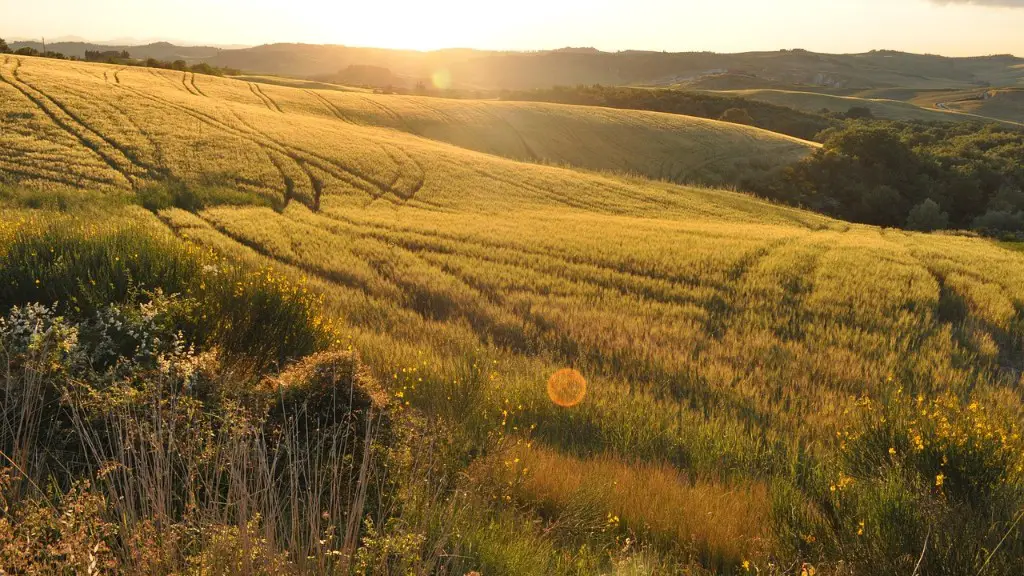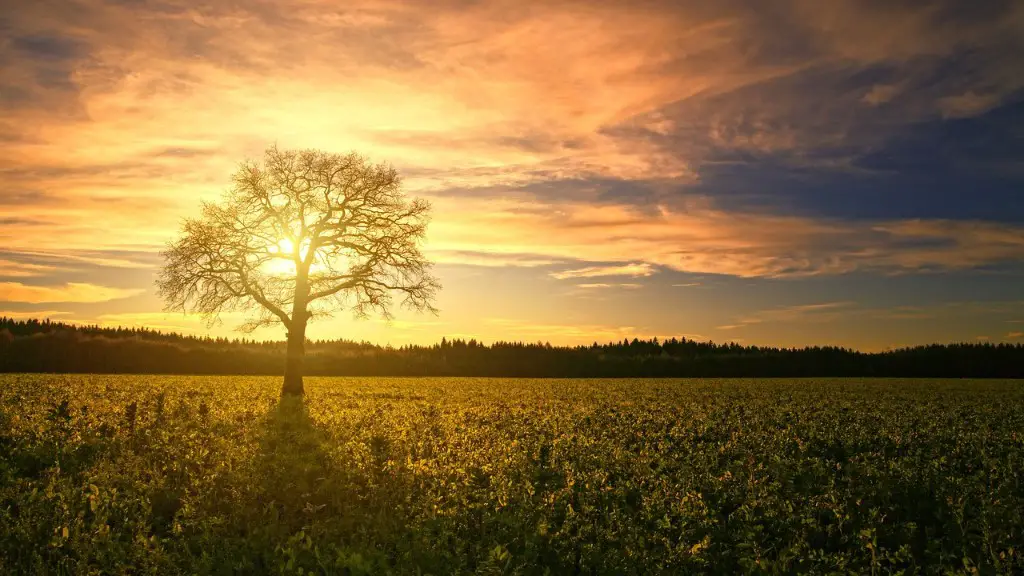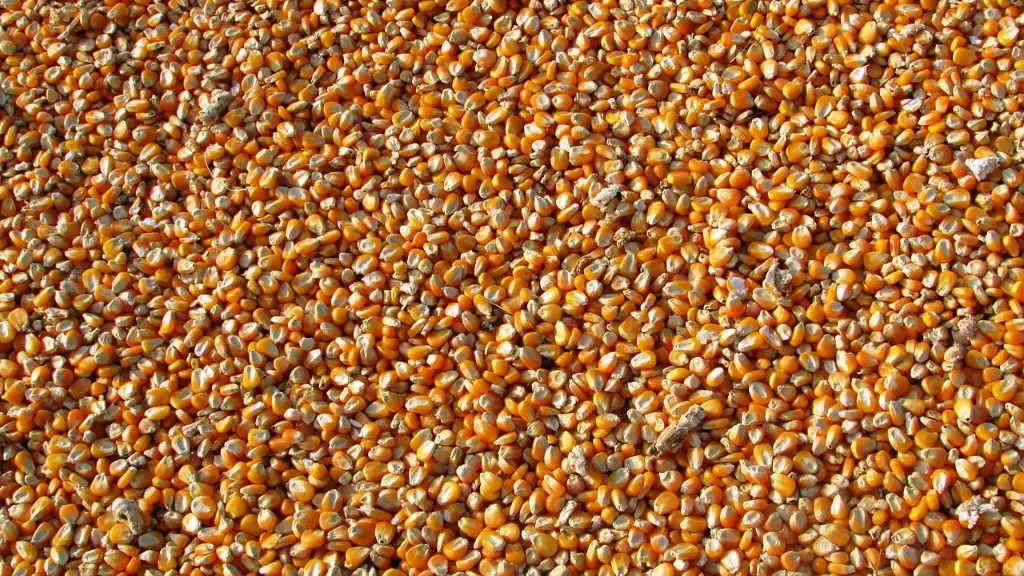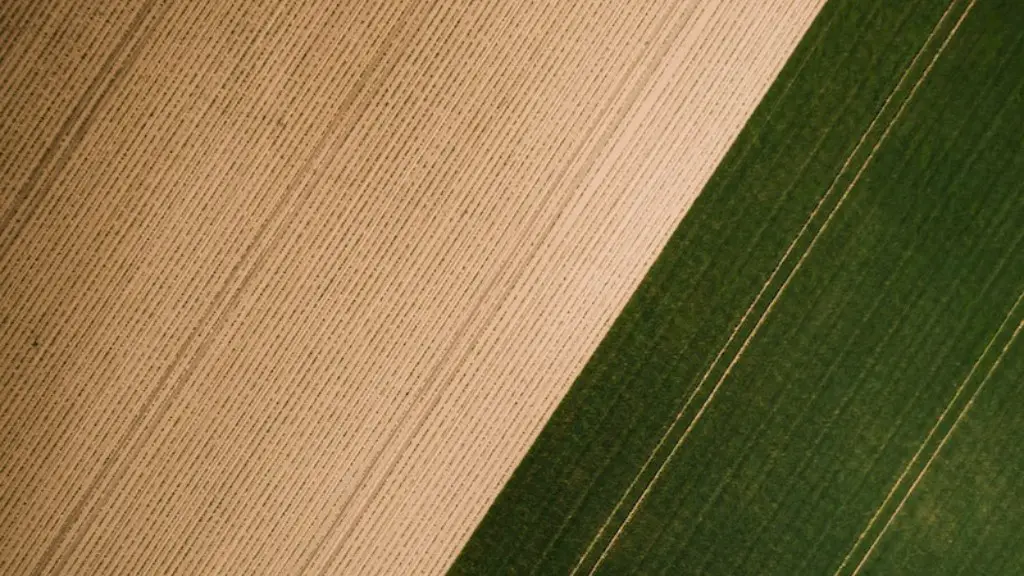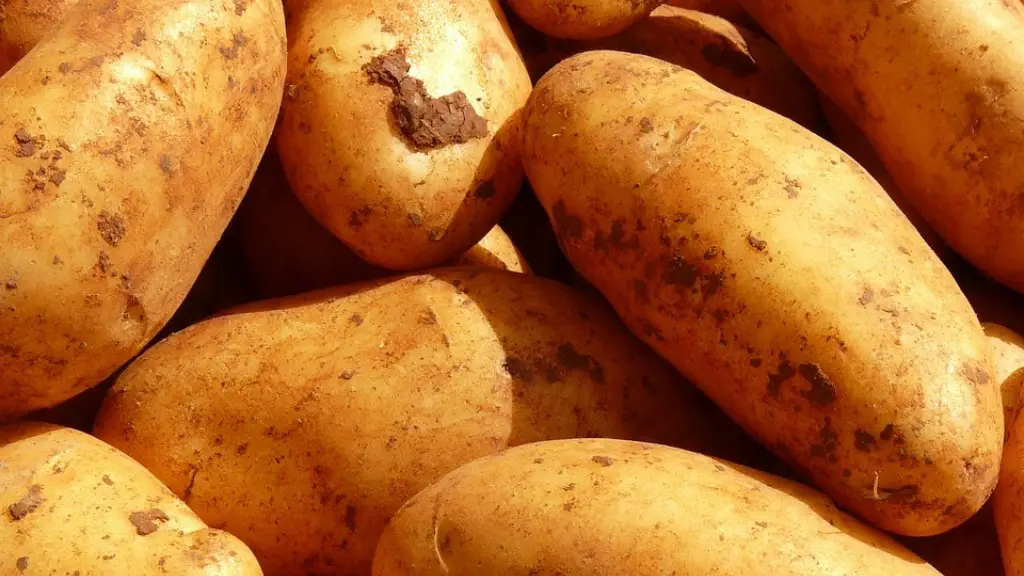Agriculture is a mainstay of the global economy, providing food, feed, fiber, and fuel. It is also a leading cause of environmental degradation, including water pollution, soil erosion, and habitat loss. In order to feed the world’s growing population, agriculture will need to become more sustainable.
The Agricultural Revolution had a profound impact on the environment. The increased use of irrigation and other forms of water management allowed for more intensive agriculture, which resulted in increased food production. However, this also had the unintended consequence of increased soil erosion and water pollution.
What are 3 effects of agriculture on the environment?
The large-scale, conventional farming system is not sustainable in the long term. It contributes to climate change, pollutes air and water, and depletes soil fertility. We need to move to a more sustainable system of agriculture that focuses on diversification, localization, and organic practices.
Livestock are responsible for a large proportion of global greenhouse gas emissions, most notably methane. In addition, overgrazing is a major problem regarding environmental sustainability. In some places, stretches of forage land are consumed so extensively that grasses are unable to regenerate.
What are 5 environmental factors that affect the agriculture industry
There are many environmental factors that influence the extent of arable land. Terrain, climate, soil properties, and soil water are all important factors. Crops need space to grow, sufficient light, warmth, and moisture. Soils must be of sufficient depth with sufficient drainage, texture, and chemical and fertility properties.
The impact of deforestation includes pollution of water bodies due to the toxic pesticides and insecticides, slash and burn, which causes erosion, ecological effects (such as carbon sequestration, energy cycle, surface water quantity regulation etc), loss of forest soil and Forest watershed due to the heavy tillage that is carrying out.
What is a negative impact on agriculture?
Soil and land degradation is a major problem for agriculture and the environment. Degradation significantly increases water and soil erosion, which can lead to major problems for farmers and the environment.
Farming allowed for the domestication of plants and animals, which led to the rise of civilizations. However, this also led to deep class divisions, as those who controlled the food sources had power over those who did not. This led to conflict and suffering for many people throughout history.
Why is agriculture bad for ecosystems?
Harvesting crops represents a significant amount of nutrients, water, and energy being taken from the land. This leaves the land barren, and unfriendly for the growth and development of new organisms and ecosystems. This is especially true of land used for industrial monoculture farms.
There are two large problems facing agriculture in the modern world. The loss of agricultural land through erosion and manmade factors is one of them. The other is the increasing lack of diversity in crops.
Loss of agricultural land is a huge problem because it means that there is less land available to grow crops. This can be a big problem in areas where the population is growing and there is already a shortage of land. In addition, loss of agricultural land can also lead to soil erosion, which can make it even more difficult to grow crops.
The other big problem facing agriculture is the increasing lack of diversity in crops. This is a problem because it means that there are fewer types of crops available to grow. This can be a big problem in areas where the climate is changing and there is a need for more drought-resistant or heat-resistant crops.
What are the 5 biggest environmental problems caused by food and agriculture
Food production is a major source of environmental problems, particularly in terms of water use and pollution, greenhouse gas emissions, and depletion of natural resources. One way to reduce the environmental impact of food production is to patronize zero waste grocery stores, which sell food with minimal packaging and strive to create as little waste as possible. Alternatively, some grocery stores are now offering plastic-free or eco-friendly options, which are also less damaging to the environment.
Sustainable agriculture is a great way to help preserve the earth’s natural resources. In addition to preserving the earth’s resources, sustainable agriculture also benefits the environment by helping to maintain soil quality, reduce erosion, and preserve water.
How does agriculture cause climate change?
Farming practices around the world contribute to climate change. At every stage of food production, farming emits greenhouse gases into the atmosphere. In particular, farming emits methane and nitrous oxide, two powerful greenhouse gases.
Methane is produced by animals, and nitrous oxide is produced by the decomposition of organic matter. Both of these gases are released into the atmosphere, where they contribute to climate change.
Farming practices can be changed to reduce emissions of methane and nitrous oxide. For example, farmers can use more efficient irrigation practices, reduce tillage, and improve manure management. These practices can help to reduce greenhouse gas emissions from agriculture and contribute to mitigating climate change.
Agricultural solid wastes need to be disposed of properly to avoid environmental pollution. In many developing countries, these wastes are often dumped or burnt in public places, which results in air pollution, soil contamination, and the release of harmful gases and smoke. This can also lead to water pollution if the residue is channeled into a water source. To prevent these problems, agricultural solid wastes should be managed properly.
Why is agriculture a problem
Since the early days of human history, farming has been a vital part of our society. It provides us with food, fibre and many other essential products. But today, farming is under pressure as never before. There are increasing pressures from climate change, soil erosion and biodiversity loss and from consumers’ changing tastes in food and concerns about how it is produced. And the natural world that farming works with – plants, pests and diseases – continue to pose their own challenges.
Farming is a vital part of our society and we need to do everything we can to support it. We need to invest in research and development to help farmers meet the challenges they face. We need to give them the tools they need to produce food in a more sustainable way. And we need to encourage consumers to support farmers by buying British food.
The future of farming is in our hands. Let’s work together to protect it.
Environmental issues can have a significant impact on farmers’ profits and productivity. Soil quality, water quality, climate, and terrain can all affect the success of a farm. Understanding the potential impact of these issues can help farmers plan and prepare for a successful growing season.
What were the consequences of agriculture for humans?
When early humans began farming, they were able to produce enough food that they no longer had to migrate to their food source. This meant they could build permanent structures, and develop villages, towns, and eventually even cities. Closely connected to the rise of settled societies was an increase in population.
There is a growing body of evidence that our food is becoming less nutrient-rich and is contaminated by pesticides, herbicides and fungicides. Global conventional agriculture also has negative social consequences, including land-grabbing, unfair working conditions and excessive waste.
These problems are caused by the way we produce food, which is increasingly industrialized and globalized. The current food system is not sustainable, and it is important that we transition to a more sustainable model.
One way to do this is to support organic agriculture, which is more environmentally friendly and does not use synthetic chemicals. Organic food is also generally more nutritious, and it is important to support farmers who are producing food in a more sustainable way.
You can also reduce your impact by eating less meat, which requires less water and land to produce. Eating local and seasonal food is also a good way to reduce your environmental impact and support your local economy.
It is important to be aware of these issues and make choices that are better for our health and the planet.
Conclusion
The way we grow and raise our food has changed dramatically over the years and evolved into what we now call “industrial agriculture.” This system is very resource intensive, and as demand for food has increased, so has the negative impact on the environment.
Industrial agriculture often involves monoculture crops, or the planting of a single crop over a large area. This can lead to soil erosion from the lack of diverse plant life to hold the soil in place. The use of heavy machinery can also compact the soil, making it harder for plants to grow.
Fertilizers and pesticides are commonly used in industrial agriculture in order to boost crop yields. However, these chemicals can run off into waterways, causing pollution. Additionally, the overuse of antibiotics in livestock can lead to the development of antibiotic-resistant bacteria.
As the population continues to grow, the demand for food will only increase. It’s important that we find ways to produce food that have less of an impact on the environment.
The ways in which agriculture has affected the environment are both positive and negative. On the positive side, agriculture has provided a way for humans to cultivate the land and grow food. This has allowed us to live in areas that would otherwise be uninhabitable. On the negative side, agriculture has often led to deforestation and soil erosion. It has also contributed to water pollution and the greenhouse effect. Overall, agriculture has had a significant impact on the environment, both good and bad.
